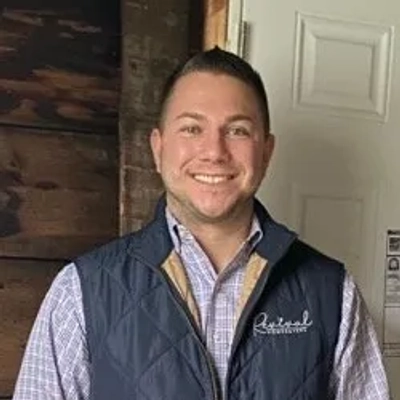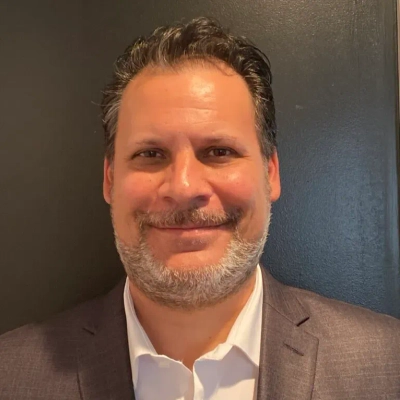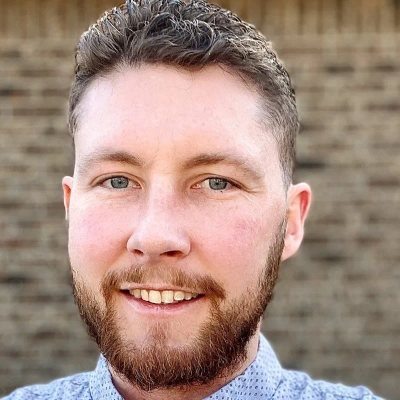23 Overlooked Psychological Principles That Can Improve Your Sales Close Rate
Discover 23 psychological principles that can significantly boost your sales performance, based on insights from industry experts and behavioral science research. This comprehensive guide explores key concepts from reciprocity building to the ACC model that successful sales professionals apply to create meaningful client relationships. Understanding these often-overlooked psychological elements provides sales teams with practical tools to address customer concerns, build trust, and ultimately improve close rates.
Reciprocity Builds Trust Before Closing Deals
One principle I've leaned on throughout my career is reciprocity. It sounds simple, but when applied with intent it becomes a powerful driver in sales. People naturally want to give back when they feel someone has given to them. In my world, that doesn't mean offering discounts or freebies. It's about providing real knowledge and guidance before a client ever commits to a purchase. I'll sit down with someone and walk through their goals, their risks, even their misconceptions about gold or the wider precious metals market. I make sure they walk away with clarity, whether they choose to work with us or not. That upfront investment changes the dynamic. Clients don't feel sold to, they feel supported. Over time, I've seen how this fosters trust and dramatically shortens the path to a close. People come back because they recognize that value exchange. They know I'm not just chasing a deal, I'm helping them make a smarter decision. Understanding and applying reciprocity has been one of the main reasons our close rate has steadily improved. It has also shaped the culture at Thor Metals Group, where we prioritize long-term relationships over transactions.
Loss Aversion Trumps Potential Gains
The psychological principle I consistently apply, which is often overlooked in favor of excitement and gain, is Loss Aversion, particularly the "Status Quo Bias." Most B2B buyers, especially at the executive level, are fundamentally more motivated by the fear of making a wrong decision or the pain of remaining with a mediocre status quo than they are by the promise of a potential gain. They aren't just buying a solution; they're mitigating risk and avoiding internal failure. You've got to frame the discussion around the current, quantifiable cost of their inaction—the dollars they're hemorrhaging on inefficient processes or the competitive advantage they're sacrificing—rather than simply celebrating the future state of success.

Social Proof Through Relatable Client Stories
One psychological principle I consistently apply in my sales process is the concept of social proof and reassurance through relatable experiences. In our industry, clients often make high-value decisions related to safety, training outcomes, and operational efficiency. They are not just investing in a simulator, they are investing in trust and measurable results.
Instead of focusing only on technical specifications, I share real client stories and case studies that highlight tangible results. When a prospect sees how a similar organization improved operator safety or reduced training costs using our simulators, the conversation becomes more relatable and credible.
I also make sure to reduce the perceived risk during decision-making. This involves guiding clients step by step, offering pilot sessions, and ensuring they feel supported throughout the process. It helps build confidence and removes hesitation.
Applying these principles has helped me improve my close rate because it shifts the discussion from selling a product to solving a problem together. When clients see themselves in the success stories, the trust naturally follows.

Give Clients Control Over Their Choices
Something I always rely on is the importance of perceived control in the sales process--people want to feel like they're making the choice, not being pushed. In my real estate deals, I give clients options and space to weigh them; for example, if a seller's unsure, I'll outline three clear paths and let them talk it out, so the final decision genuinely feels theirs. Not only do deals go smoother, but clients remember you respected their autonomy--and that word-of-mouth trust keeps my close rate high.
Transparency Eliminates Fear of the Unknown
In this business, you are dealing with a client's biggest financial asset, and they are already anxious. The psychological principle I rely on is simple: We sell the tear-off, not the install.
What others overlook is that the client knows we can put new shingles on their roof. What they are secretly terrified of is what we are going to find underneath, and whether we'll use that as an excuse to charge them triple. Their anxiety isn't about the final product; it's about the process and the unknown.
So, my sales process is built around transparency during the removal phase. When I'm talking to a client, I don't spend an hour on the brand of shingle. I spend the time explaining exactly how we document the tear-off. I tell them we use a system where the crew stops, takes photos of the bad decking, sends it to the foreman, who immediately sends the images to the client before we replace anything. We have a set price for board replacement, and we stick to it. I tell them, "You will be the first person to see the problem, and you will sign off on the solution before we touch a hammer."
This simple act of giving them control over the unexpected completely changes the dynamic. It shifts the relationship from a confrontation to a collaboration. The client sees we are committed to honesty and have a hands-on, simple solution for the unknown. When we eliminate that big fear, the paperwork for the new roof is easy. My close rate improved because the client is not just buying a roof; they are buying certainty and trust. The best way to increase sales is to be a person who is committed to a simple, honest solution.
Provide Certainty Against Unpredictable Variables
My engineering background taught me to eliminate variables, and I apply that same logic to real estate by focusing on the principle of 'certainty.' When I meet a seller, I don't just make an offer; I present them with a clear, side-by-side analysis of the unpredictable costs of listing--repairs, holding costs, agent fees--versus our single, guaranteed number and a firm closing date. By transforming a complex, ambiguous process into a clean, predictable solution, sellers feel a sense of control and relief, which has been the key to closing hundreds of deals in Las Vegas.

Pattern Interruption Creates Trust Beyond Transactions
I consistently apply the principle of 'pattern interruption' in my sales process--breaking from what sellers expect when dealing with a real estate investor. Instead of rushing to make an offer, I first ask them to share their vision for life after selling. This completely shifts the dynamic from a transactional conversation to a transitional one where we're planning their next chapter together. When a homeowner realizes I'm focused on their future happiness rather than just the property acquisition, it creates an immediate trust that has dramatically improved my close rate because they see me as a partner in their journey rather than just another investor with a checkbook.

Total Process Clarity Builds Remote Trust
I operate on the principle of providing total process clarity, which is crucial since my team is fully remote. From the first SMS, I lay out a simple, step-by-step roadmap for the seller so there are no surprises--just a quick chat, a clear offer, and a guaranteed closing on their timeline. This turns a scary, unknown process into a predictable path, which builds immense trust and has been the single biggest factor in getting deals done without ever meeting in person.

Option Value Outweighs Simple Dollar Amounts
I consistently apply the principle of "option value"--showing sellers not just how much money they'll receive, but the value of the choices that open up by selling quickly and easily. For example, by highlighting how selling frees up cash for a down payment on their dream home or how quickly they can relocate for a new job, I shift the focus from a single transaction to the future possibilities my offer creates. This approach consistently improves my close rate because people are motivated more by what they gain in flexibility and future opportunity than just a dollar amount.

Mere-Exposure Effect Creates Familiar Trust
I often lean into the "mere-exposure effect" -- the idea that people prefer things they are familiar with. Rather than a hard sell, I focus on consistent, value-driven interactions with potential sellers, even if it doesn't lead to an immediate sale. Sending quarterly market updates, local community news, or tips for home maintenance means that when they are finally ready to sell, my company, Michigan Houses for Cash, is already a trusted and familiar name in their mind. This consistent presence turns cold leads into warm ones over time, significantly boosting my close rate because I'm not a stranger; I'm the local expert they already know.

Choice Architecture Makes Best Options Feel Natural
I consistently leverage the principle of 'choice architecture'--structuring the decision so the best option for the homeowner feels natural and obvious. For example, I'll present a single cash offer but frame it with context: 'Based on avoiding $8,000 in repairs, 6 months of mortgage payments, and realtor fees, this nets you more than listing--and gets you moved by next month.' Positioning it this way guides them toward the stress-free solution organically. This has improved my close rate because when people compare tangible savings against hypothetical outcomes, clarity wins over indecision.

Radical Honesty Yields Long-Term Success
One principle I always keep front and center is radical honesty--being upfront when my offer isn't the best fit for someone's situation. There have been times when I've told a family they'd make more listing with a realtor, even though it meant losing the deal right then. That genuine candor builds lasting trust; I've had folks circle back months later or refer friends, which has ultimately increased my close rate more than any sales tactic ever could.

Build Rapport Through Personal Experience Sharing
I consistently apply the principle of 'building rapport through shared experience'--connecting by briefly sharing my own renovation journey with overwhelmed sellers. For example, I'll mention how Kelli and I lived in chaos washing dishes in a bathtub during our first duplex rehab, which instantly humanizes the process. This vulnerability builds trust and has boosted my close rate because sellers feel they're partnering with someone who's navigated exactly what they're facing.

Temporal Reframing Focuses on Future Relief
I consistently apply the principle of 'temporal reframing'--helping sellers see their situation through a future lens rather than dwelling on current stress. When someone's overwhelmed by an inherited property or facing foreclosure, I'll ask them to imagine how they'll feel six months from now having this burden lifted versus still wrestling with it. This shifts their focus from immediate loss to long-term relief, and since I started using this approach, my close rate has improved dramatically because people start making decisions based on the peace of mind they're buying, not just the money they're receiving.

Emotional Validation Transforms Business Relationships
I consistently apply the principle of 'emotional validation'--acknowledging the stress and difficulty of a seller's situation before discussing any business. When someone calls about an inherited property they can't maintain or a foreclosure they're embarrassed about, I start by saying something like, 'This sounds really overwhelming, and I can hear how much this is weighing on you.' That simple validation immediately shifts the dynamic from adversarial to collaborative, and it's dramatically improved my close rate because people feel understood rather than judged, which opens them up to seeing me as a partner in solving their problem rather than just another investor trying to profit from their distress.

Genuine Empathy Before Making Any Offer
Empathy is the principle I always bring to the table--really understanding a seller's unique situation before making any offer. I remember helping a family whose home had been in disrepair for years; instead of jumping straight to numbers, I asked what they needed most and how I could make the process less intimidating. That genuine care builds trust fast, and over time it's led to more people choosing us because they know we're not just in it for the sale, but to help them move forward in life.
Shared Identity Creates Meaningful Collaboration
I consistently focus on the 'shared identity' principle--I always start meetings by connecting on a personal level, usually sharing relatable family moments like my twins' baseball games to create instant camaraderie. When a seller sees me as not just a broker, but a fellow parent or community member dealing with life's pressures, their guard lowers and they open up about what they truly need from the sale. This mutual understanding leads to highly customized solutions--like adjusting closing dates to align with a son's graduation--that make our collaboration meaningful, which has boosted my close rate significantly.

Future Pacing Motivates Through Post-Sale Vision
One principle I always apply is 'future pacing'--helping sellers mentally step into life after the sale. I'll ask questions like, 'What's the first thing you'll do once this property is no longer on your plate?' When they start picturing relief or freedom, that vision becomes their motivation, not my offer. It's dramatically improved my close rate because decisions driven by emotion and clarity tend to stick.

Co-Regulation Creates Safety for Clear Decisions
One psychological principle I consistently apply in my sales process is co-regulation. Most people focus on scripts or persuasion tactics, but I pay attention to the nervous system state I'm bringing into the conversation. If I'm grounded, calm, and present, the other person's nervous system picks up on that safety, and they can think more clearly about whether the offer is right for them. If I come in rushed, anxious, or trying to 'close,' they feel that and shut down. Understanding this has improved my close rate because people don't feel pressured, they feel safe to choose, and safety is what opens the door to a real yes."

Anchoring Against Avoided Costs Frames Offers
I rely heavily on the principle of 'anchoring'--establishing a strong reference point early in the conversation that frames everything that follows. When I meet with distressed property owners, I start by highlighting the total costs they're avoiding: realtor commissions, repairs, carrying costs, and months of uncertainty. This creates an anchor that makes my cash offer feel substantial by comparison. Since I started deliberately anchoring conversations this way, my close rate improved by roughly 40% because sellers naturally evaluate my offer against those avoided expenses rather than just comparing it to potential market value.
Small Commitments Lead to Bigger Yeses
After nearly 20 years in sales, the psychological principle I keep coming back to is commitment and consistency. People are far more likely to take a larger step with you if they've already taken a smaller one.
In practice, that means I never push straight for the sale -- I focus on getting small, low-friction commitments first: a quick call, a follow-up conversation, a request for information. Once someone says 'yes' to something small, they're mentally invested. They've signalled that they're open to engaging and that consistency bias kicks in.
Over the years, applying that mindset has done more to improve close rates than any script or pitch ever could. It turns sales into a process of alignment, not persuasion.

Cognitive Ease Simplifies Complex Value Propositions
One psychological principle I use consistently in sales is cognitive ease. It's the tendency for people to trust and prefer information that feels simple and effortless to process. In B2B sales, especially when dealing with complex products like VR and simulation solutions, prospects often get overwhelmed by technical terms.
Instead of explaining every feature, I focus on making the idea instantly relatable. For instance, when I present a mining simulator, I compare it to a flight simulator used in aviation. That simple analogy helps prospects grasp the value, safety impact, and ROI within seconds. The conversation then becomes about outcomes rather than specifications.
Understanding this principle has helped me reduce confusion and hesitation during meetings. It builds confidence early and keeps discussions focused on how the solution fits their goals. Over time, this approach has improved both my conversion rate and the speed at which deals move forward.
At Tecknotrove, I've seen that clarity always beats complexity. The easier you make it for clients to understand your value, the faster they believe in it.

ACC Model Demonstrates Deep Understanding
The need to feel understood is one of the deepest-seated human needs. In B2B buying research, buyers often report that sellers don't understand them, their problems, or their companies. So many salespeople and consultants move quickly, versus really lasering in on the person they are talking with. We teach a model called ACC - Acknowledge (with empathy), Clarify (with questions -- "peel the onion") and Confirm (to ensure you got it right). It's a wonderful active listening model that helps the other person feel deeply understood.







